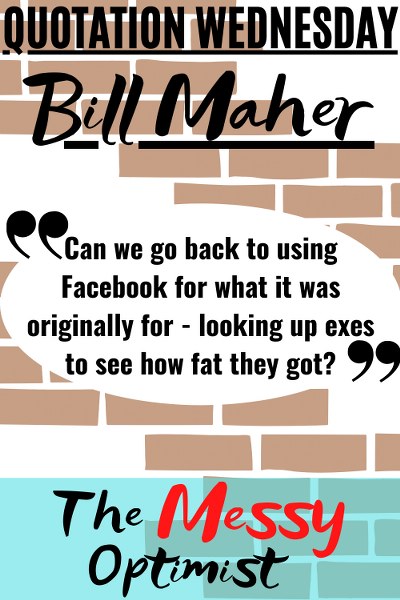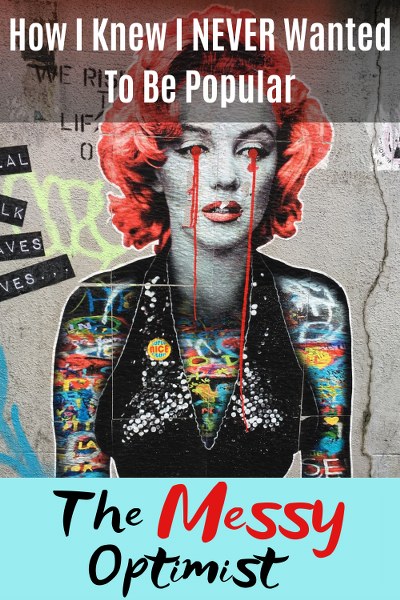The Money Optimist – Top 10 Money Truths
By the messy optimist
So…my blog is called The Messy Optimist. And I am one. A complete mess. But I’m also a total and utter optimist. That’s because I learned early – life will always shit on you. You can either whine and complain and wallow and be negative about the challenges life throws you. OR…you can try and look at the glass half full. It is a choice. And it’s up to us to make it.
And, so, I made a choice. Yes. I am that person we all not-so-secretly hate. I am now the glass half-full kind of a person. I want to make it clear. I didn’t use to be. I was not just the glass is half-empty person but I was the there-is-NO-water-on-this-goddamn-planet type of person. It took me time and working on myself repeatedly to get to being optimistic.
And here I am now.
If 2020 was sucky for the whole entire world – god gave me special treatment and made it the ultimate suck-fest for me. So, being optimistic right now is harder than it’s ever been. BUT…I realize I have so much to be thankful for. I’m still standing. I have my health. I have a place to call my own. I have food to eat and Netflix for company.
Not too shabby, eh?
So…this is me…being optimistic about life. About family and friends. About relationships. About food. About fitness and weight issues and diets. About my maniacal love for all things sugar and sweet and buttercream and icing.
And about MONEY.
I am – BY NO MEANS – rich. Or even remotely upper-middle class. I just about straddle the middle of the middle-class line. But given where I started (which was starting to save, like really save money, at a much older age and while making significantly less money than most of my peers, especially in the US) – I am bloody proud of where I have landed now. I am now – comfortably middle-class. I am too old to ever, ever, ever make any more money than what I have now (I also recently got laid off). But even as my life is still an unholy mess – I am optimistic that I will be get out of this funk soon.
That makes me a very messy optimist about money.
SO…
This compilation of the top 10 money truths that people don’t ever talk about has come about after many long years of handling and experiencing money personally. I wish I’d known back then what I know now. But – better late than never.
And I get it. Talking about money makes people uneasy. It does me too. I’m still not too comfortable talking about the details. But I’m learning to at least talk about the more macro concerns regarding money.
First off, every single tip here on The Messy Optimist – whether it’s wrt money, travel etc., come from my own experience. If you look in the online blogosphere – there are many of these Tips Listicles going around but they all bullet point their way around key money issues. They give you very doable tips on how to save money and be frugal (and I will too in my future posts).
But to launch what I hope will be a series of straight money talk on my blog – I want to start with the psychology behind how we deal with money.
And NO.
I AM NO PSYCHOLOGIST. This is what worked for me – through trial and error I learned from my mistakes and I hope you find my mistakes helpful. These are true irrespective of your age. It’s when you finally decide you want to understand your own money habits that these will make sense. And that can be whether you’re a teenager just starting out or in your 50s/60s and getting ready to retire and all the years in-between.
1. You need to WANT to save money.
The key word here is SAVE. Look…I’m Indian and although I’ve spent a lot of time in the US and ‘get’ America and Americans…there are still many things I think and do as an Indian only. One of the key differences between me and my American friends is when it comes to handling and saving money. I’m fundamentally a saver. Some of my American friends do save – but it’s more of an afterthought. It’s NOT the FIRST thing they think about.
I think that’s key.
I like knowing that I have money in the bank. I think you save more when you begin to like that feeling. You need to WANT to do it.
2. Understanding that we all don’t / CANNOT have jobs that pay $50k or $60K or $100k a year and that it’s OKAY
Reading about Steve Jobs and Warren Buffet and Jeff Bezos and Bill Gates and Mark Zuckerberg is all great and very well. Their lives and their successes – especially their monetary successes are incredibly inspiring.
OR it can be depressing.
Hell – I have family – young family members in their 20s who bank more money than I do and I’m some two decades older than them. For me though – as much as I found their stories inspiring or depressing – the key takeaway was I could never replicate their financial successes. And to be OK with it.
3. We cannot all get degrees in STEM or Finance
Thing is – for one – I’m not an engineer.
Or a coder.
Or a Chartered Accountant.
Or a banker.
And I could NEVER be any of them. I just do NOT have the aptitude for any of these professions. This means that I’ve never worked in the traditionally high-paying industries.
And I still don’t (I’m a visiting professor now). And I never will.
I also knew, pretty early on, that I could never even imagine the kind of financial success that people in these careers seem to have with the career path I had in front of me. I’ve also navigated working in two countries and with major visa issues and expenses that come with it while trying to make it in one of them (US). All of that took a financial toll on my bank balance.
I had to UNDERSTAND all this before I could figure out how to be financially savvy with what I could do.
4. Find the right story to be inspired by
As much as we are surrounded by images of successful people and tips about how to replicate them abound online – for me – none of that worked. I could do everything that Bill Gates did but I would still never ever make even a trillionth of the money he does. That’s just a fact.
So how can all those tips about how he made his money ever work for me? What did help me on my financial growth was that I was very driven. I understood that I had to make the best of what was in front of me and make that work.
Meaning – I had to make the best with what I earned.
And while I could never be financially on the same level with what my 20-something cousin-brother makes as a techie in Silicon Valley – I could still do what I can to be as stable as I can in the job that I’m in.
So I had to dig deep and find that motivation from something/someone close to me, my life and my experiences.
And I did NOT have to look far.
5. Find one key moment in your life that can push you towards saving money
I found that drive to make the best of what I can from my own family. And that’s what I focused on.
Thinking back to my childhood I remembered the myriad financial commitments my parents had with family and how difficult it was for them to provide for so many, especially in the initial years of their marriage. As much as I admired them for never giving up on their duties (especially my father who had many siblings that he had to take care of as the eldest in the family) – it also served as the impetus for me to understand – really understand – the need to have money in the bank.
That pushed me.
I became a saver very early on – in my teens – and while I have never really earned a lot of money (none of my jobs paid well despite my having a PhD!!!) I still knew the value of saving.
So at different stages of my life – I earned different levels of low money but I always, always, always saved when I could. I never had anywhere close to what many of my contemporaries or family members had but I always, always, always had SOMETHING in the bank.
And every time I whined about how easy some had it and how hard it was for me – I remembered how tough it was for my folks (and how comparatively easy I had it since I was/am single) and how gracefully my folks handled it. That pushed me to do better.
Find that moment from your life. Trust me – there IS one.
6. One Size does NOT fit all
Most money folks tell you to put away 10 or 20 or 30 percent of your money in a savings account. Or max out what you’re allowed in your 401K or your Roth IRA account. Or add money to your retirement account. And then do with the rest of the money (if there’s any left) what you want – guilt-free. Others urge you to spend less than you earn.
And they are ALL important pieces of advice.
But again – it’s NOT a one-size-fits-all.
For some, just making ends meet every month is a battle won. For others saving 5% is a big deal. And then for others – saving is just not a big deal because they’re 25.
I read on CNBC’s Millennial Money about a 25-year-old hairdresser from Detroit who banked $280k each year over the past few years and spent it on buying multiple BMWs and Mercedes cars and Hermes bags. And when Covid hit this year – he has very little income coming in and he is on UNEMPLOYMENT! Click on the following link to learn more about this young man (I tried to embed the story but it wouldn’t let me).
https://www.cnbc.com/2020/05/05/how-hairdresser-faring-coronavirus-pandemic.html
I mean…WTF? How can ANYONE make $280k in Detroit one year and go on unemployment the next? Maybe this guy followed what many money gurus told him to – save 5% of your income and spend the rest guilt-free. And maybe that’s what he did. EXCEPT – there’s a BIG difference between making 50k with a family of 4 and saving 5% and being single and making 280k and STILL ONLY SAVING 5%.
ONE SIZE DOES NOT FIT ALL.
If I made 280k in DETROIT – one of the cheaper cities in the US – I’d have bought multiple homes outright and retired at 26.
Thing is – again – the one-size-fits all does not work. If you’re earning 250k a year and your expenses are close to 25k – you should, of course, spend and have fun with your money. But you should also save much, much, much more than the 5% money gurus ask you to.
Because YOU F…ING CAN.
7. Understand that it’s NOT an EITHER / OR
So – understand that it’s not an Either/Or situation. Really, really understand that with the money you make – what can you put away each month without feeling the pain?
That’s key.
If you can ONLY put away 5% every month – do it. If you can put away 70% every month – DO IT.
If you CAN PUT AWAY 70% but you’re only putting away 10% because Suze Orman said so – that’s a BIG FAIL in my book.
If you’re able to put away only 2% despite the incredible commitments you have (children, college fund, home mortgage, car mortgage, insurance and so much more) – then that’s a BIG WIN in my book.
Because one-size does NOT fit all.
8. Better Late Than Never
I think this is fundamental to start the saving process. I cannot tell you how many friends I have who have given up saving money because it’s too late.
“I’m 30 and have been working for five years now and I still only have one month’s rent in my bank account. What’s the fucking point?”
“I’m 40 and still rent a house.”
“I’m 50 and I still have a roommate.”
What’s the point?
I hear this from so many of my friends. And this attitude gets worse when you have other friends who own a house, have a quarter of a million dollars in their 401K, their cars are paid off and they have college money for their two kids. When you’re surrounded by these types of friends – it can be very hard.

9. Do what you can do with where you are RIGHT NOW.
I, too, have multiple friends with so much money banked and I wondered why I didn’t.
And it killed me.
And then I had to understand so many things – starting with the kind of qualifications they have and, therefore, the job they have.
Some of my friends also got money from their parents to buy their cars and homes. Also, most of my friends in their 30s and 40s are married and their savings is actually the result of TWO people’s earnings as opposed to mine. That is so important to remember. (Of course – those friends always told me that I have NO KIDS and so I had it easy. Thing – we are both correct.)
What I needed to understand was that irrespective of how well off some of my friends were or how shitty others lives were – it did NOT affect MY life.
There is NO getting around the fact that complain all you want about how shitty life has treated you wrt money – we still have to do the hard part – saving money – ON OUR OWN.
Bottom-line – no matter what – you will still have more money if you save than if you don’t.
10. Good luck and start saving
Keeping the best for last – what I can tell you is that you need to just start. Start somewhere, anywhere. Start with a few bucks a month and even if it feels like it’s not worth the effort – trust me – it is.
Like I said above – it’s our life, our responsibility and no one else is going to do the hard work for us.
So…
Good luck and start saving! There’s no time like the present.




